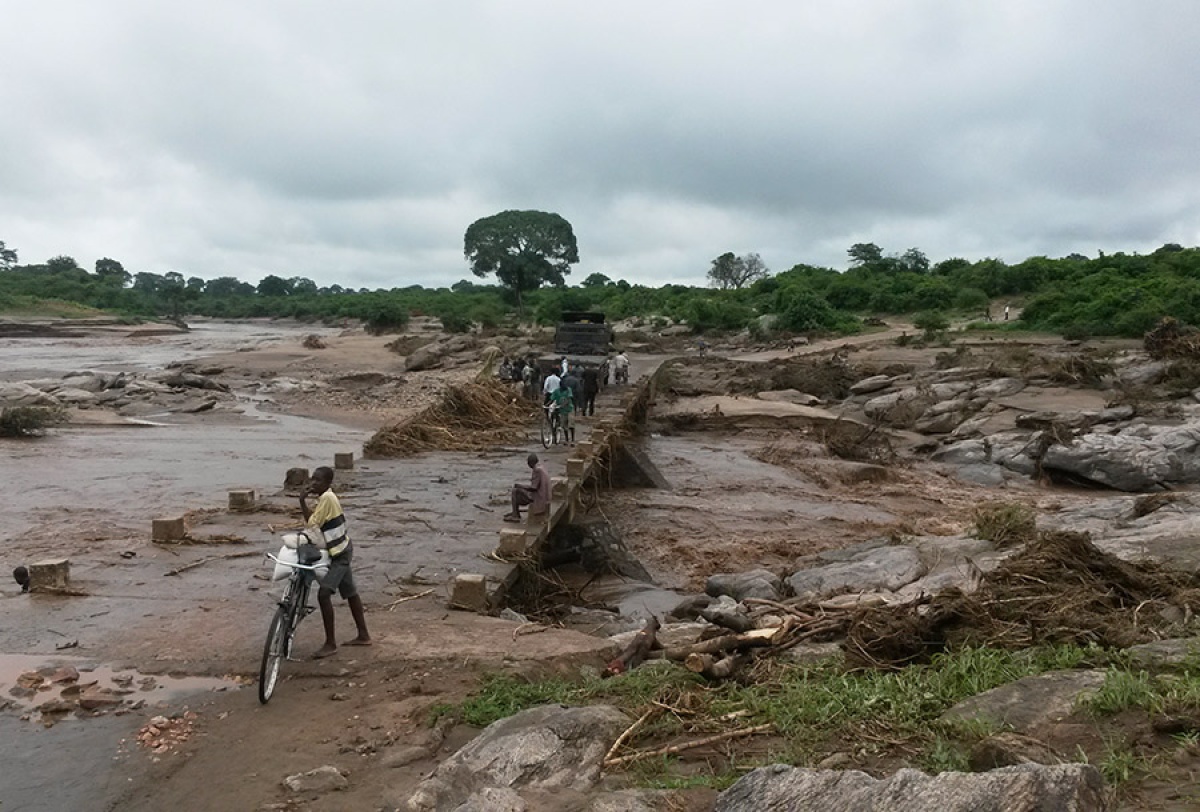PIH Continues Mobile Clinic amid Malawi Flooding
Posted on Feb 6, 2015

Heavy rainfall continues to cause flooding in Malawi, affecting 1.15 million people and displacing 336,000, according to United Nations estimates. The nonstop rains that pummeled the country in early January have slowed into patterns more typical of Malawi’s wet season. Still, flash floods and downpours are exacerbating flood-related issues.
Partners In Health’s Malawian sister organization, Abwenzi Pa Za Umoyo, has worked with the Ministry of Health in Neno District since 2007. Although Neno, in southwestern Malawi, is not among the country’s worst-affected districts, flooding has displaced thousands. PIH/APZU has responded with a weekly mobile clinic in the low-lying Matope community.
A 20-person team of local health officials, doctors, nurses, and support staff members led the first clinic, on Jan. 24. Responders assessed the community’s needs and provided free medical care to 662 people, nearly 10 percent of whom were children younger than 5. The second clinic was Feb. 5 and served 250 patients.
As of late January, 461 households in the Matope community had been damaged, and 2,000 people—including 1,300 children—had been displaced. Nearly 400 acres of crops have washed away, creating concerns about people going hungry. Most people in Matope are subsistence farmers, meaning their crops must yield enough food to last until the next harvest. Many families lost their stores of maize along with their crops in the floods, leaving them with no food source for the immediate or long-term future.

Malawians hoping to cross a bridge in Neno District wait for water to recede. Flooding this rainy season has raised health-related concerns and destroyed crops. (Photo: Margot Prendergast/Partners In Health)
The flood-related health issues are only part of the picture in Neno District, however. Many patients seeking care at the mobile clinics have conditions that are linked to lifelong poverty. The most common complaints at the Jan. 24 clinic were of musculoskeletal pains. Twenty-one percent of patients had respiratory tract infections, 9 percent had malaria, and 6 percent had diarrhea. In children 5 years and younger, respiratory tract infections, malaria, and diarrhea were the most common conditions.
The second mobile clinic incorporated a multidisciplinary team that provided malnutrition screening and examined sanitation concerns in Matope. Of the 250 patients seen Feb. 5, 80 percent were children. The most common diagnoses mirrored those of the Jan. 24 clinic: malaria, respiratory infections, and diarrhea.
In addition to treating these diseases, PIH/APZU provided water-purification tablets to help protect people from water-borne diseases such as cholera.
Flooding remains a concern as Malawi’s rainy season continues, and the nutrition and agriculture emergency is likely to persist for months. PIH/APZU is committed to providing relief and to helping rebuild the Matope community.
Related links:
PIH Responds to Malawi Floods With Mobile Clinic
A Mobile Clinic Delivers to Mothers and Children in Malawi

